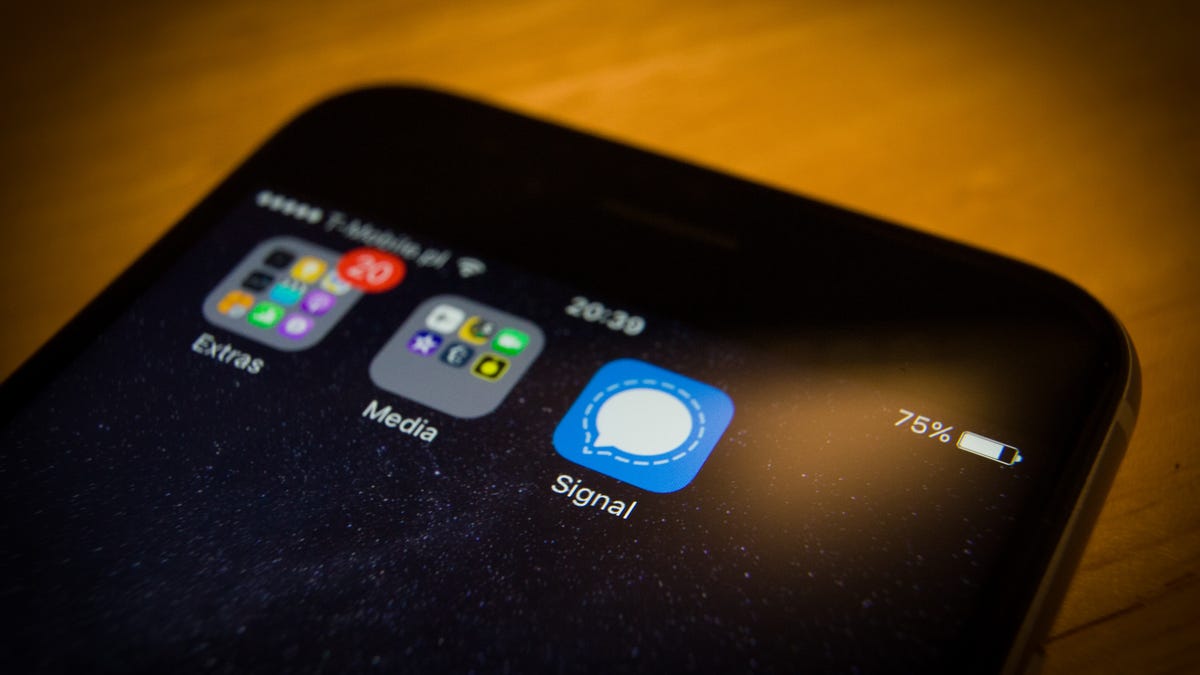GOP demands inquiry into EPA use of encrypted messaging apps
A congressional committee says it's worried the conversations run afoul of federal record-keeping requirements.

The Signal app uses data encryption to send messages only readable by the designated receiver.
Some members of Congress are demanding an investigation into the Environmental Protection Agency's use of texting and encrypted chat apps like Signal.
Encryption scrambles data and only lets a person with the correct passcode have access. Tech firms and privacy advocates argue that encryption is essential to secure personal information and communications. The government and law enforcement officials counter that encryption hurts their ability to investigate criminal and terrorist activity.
Federal employees with concerns about the impact of President Donald Trump's administration have turned to encrypted messaging apps, new email addresses and other ways to coordinate their defense strategies, according to a report earlier this month from Politico.
That article and others prompted Rep. Darin LaHood, a Republican from Illinois, and Rep. Lamar Smith, a Republican from Texas, to send a letter to EPA Inspector General Arthur A. Elkins, Jr. asking him to "determine whether it's appropriate to launch a full-scale review" of EPA workers' use of encrypted apps. Smith serves as chairman of the Committee on Science, Space and Technology, while LaHood is vice chairman of the subcommittee on oversight on the Science, Space and Tech committee.
"Over the past few years, we have seen several examples of federal officials' circumventing Federal Records Act requirements and transparency generally," they wrote. "In this instance, the Committee is concerned that these encrypted and off-the-record communication practices, if true, run afoul of federal record-keeping requirements, leaving information that could be responsive to future Freedom of Information Act (FOIA) and congressional requests unattainable."
The letter requested a response from the Inspector General by February 28. The letter doesn't mean he is required to conduct a full investigation.
"The EPA OIG leadership is carefully reviewing yesterday's request from House Science Chairman Lamar Smith and Subcommittee Chairman Darin LaHood that the OIG review EPA employees' use of encrypted messaging applications to conduct official business," said the press office for the EPA Office of the Inspector General.
The EPA didn't immediately respond to CNET's request for comment.
Encryption gained a lot of scrutiny a year ago during Apple's public battle with the FBI over a request to help unlock an encrypted iPhone used in a terrorist attack. And after Democratic Party emails were hacked, Hillary Clinton and others working on her presidential campaign adopted Signal.
The letter on Wednesday cited a recent review from the EPA inspector general that found between July 1, 2014 and June 30, 2015, only 86 of the 3.1 million text messages sent or received on government-issued devices were preserved and archived as a federal record.
"Not only does this demonstrate the vast issues presented with using text messages to conduct official business, but raises additional concerns about using encrypted messaging applications to conduct official business, which make it virtually impossible for the EPA to preserve and retain the records created in this manner to abide by federal record-keeping requirements," the letter said.
Update at 3:20 p.m. PT: Adds comment from EPA Office of the Inspector General.
CNET Magazine: Check out a sample of the stories in CNET's newsstand edition.
Life, disrupted: In Europe, millions of refugees are still searching for a safe place to settle. Tech should be part of the solution. But is it?

